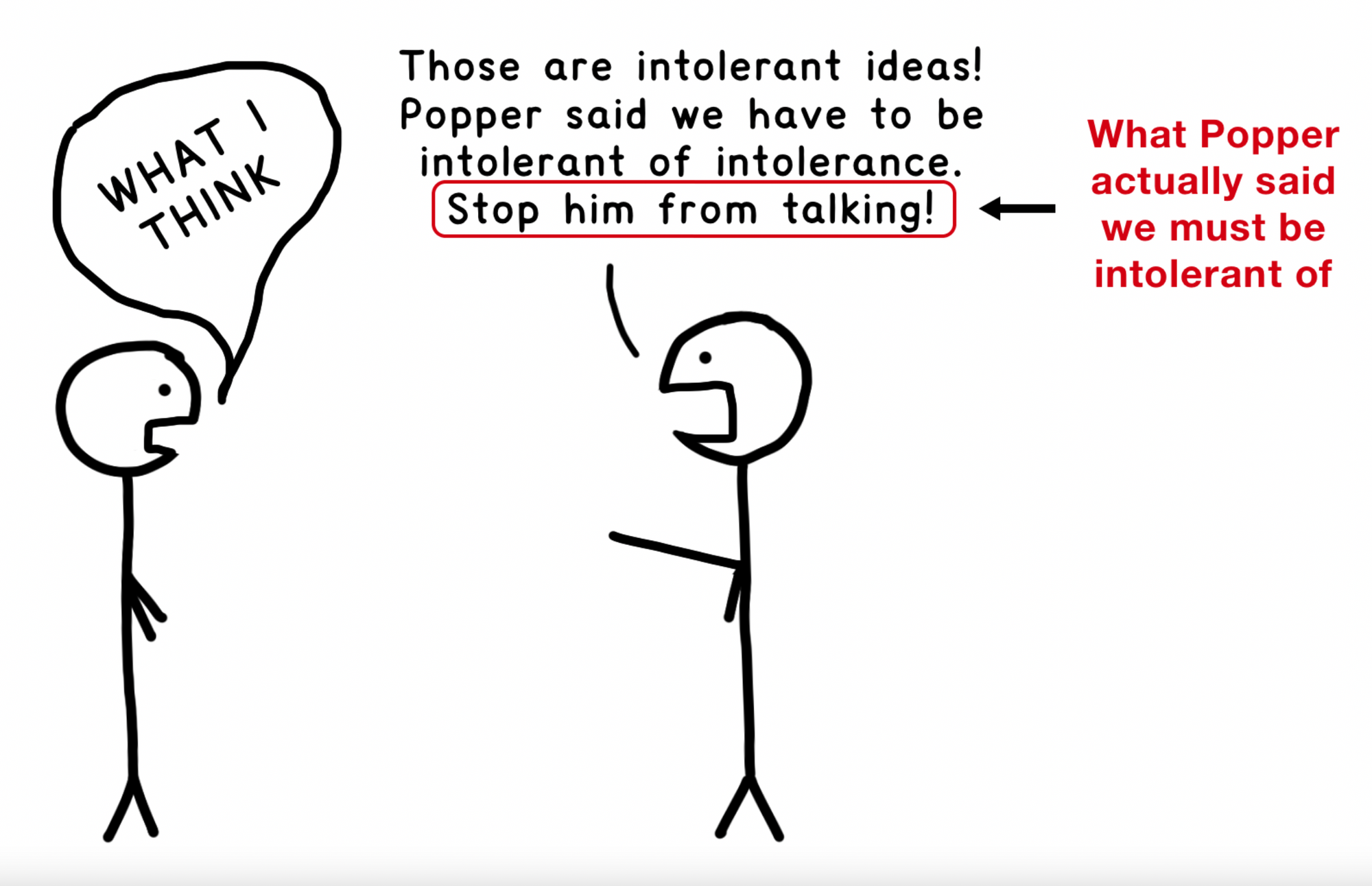On the paradox of tolerance
This post is part of a series on Tim Urban’s book, What’s Our Problem? a self-help book for societies.
--
To diagnose the cause of polarization in our society, Urban introduces the concept of "idea supremacy" and the epidemic of social authoritarianism that we are currently experiencing.
This is precisely the kind of thing that the philosopher Karl Popper warned about in his 1945 book, "The Open Society and Its Enemies," when he explained the paradox of tolerance:
Unlimited tolerance must lead to the disappearance of tolerance. If we extend unlimited tolerance even to those who are intolerant, if we are not prepared to defend a tolerant society against the onslaught of the intolerant, then the tolerant will be destroyed, and tolerance with them.
Consider a hypothetical country, Pacifistopia, that refuses to participate in war under any circumstances. Now imagine a neighboring country, Warlandia, that has no qualms about engaging in war and is determined to expand its territory at any cost. What do you think would happen to Pacifistopia in this scenario? The answer is self-evident.
The paradox of tolerance works similarly. Tolerance is a good ideal to strive for, but unlimited tolerance can be disadvantageous and even dangerous for those who practice it. To maintain a tolerant society, that society must retain the right to be intolerant of intolerance.
But who gets to determine which forms of intolerance are truly intolerable? This is where things become murky. Many situations are morally ambiguous, and as a result, there's a tendency to label anything and anyone that one dislikes or disagrees with as intolerant.

Popper clarifies when we should invoke intolerance in a liberal society:
I do not imply, for instance, that we should always suppress the utterance of intolerant philosophies; as long as we can counter them by rational argument and keep them in check by public opinion, suppression would certainly be unwise. But we should claim the right to suppress them if necessary even by force; for it may easily turn out that they are not prepared to meet us on the level of rational argument, but begin by denouncing all argument; they may forbid their followers to listen to rational argument, because it is deceptive, and teach them to answer arguments by the use of their fists or pistols. We should therefore claim, in the name of tolerance, the right not to tolerate the intolerant.
Somewhat ironically, the sweet spot of tolerance requires us to allow the expression of ideas that we disagree with. Popper places a lot of emphasis on rational argumentation and criticism, key tools of liberalism, to defeat bad ideas in the marketplace of ideas. If people refuse to play by these rules, liberal societies should be intolerant of them.
As someone who largely agrees with the ideals of liberalism, this makes sense to me. But I’m left with a few questions:
- What happens when the marketplace of ideas is dominated by illiberal, intolerant philosophies that refuse to play by liberal norms?
- In the age of social media, tribal behavior is amplified at the expense of well thought out, rational argumentation. How might we correct this pattern?
- As a society, we consider incitement to physical violence intolerable. Is there a place for psychological harm in the discussion of violence? If not, why not? If yes, how might we consider where to draw the line?